Food waste policies are reshaping how households manage kitchen scraps, aiming to reduce landfill waste and promote sustainability. However, these regulations can create challenges for kitchen plumbing systems, leading to clogs, slow drainage, and costly repairs. This article explores how food waste policies affect kitchen drain maintenance, offering practical tips and professional solutions to keep your plumbing in top condition.
What Are Food Waste Policies?
Food waste policies require households to separate organic waste, such as food scraps, from regular trash to support composting or other eco-friendly disposal methods. These regulations aim to reduce landfill contributions and promote sustainable waste management. While environmentally beneficial, these policies often lead to increased reliance on kitchen sinks and garbage disposals, which can strain plumbing systems. Understanding these rules is key to managing their impact on your home’s drains.
How Food Waste Policies Affect Kitchen Drains
Food waste policies encourage responsible disposal of organic waste, but they can inadvertently stress kitchen plumbing. Here’s how:
- Heavy Garbage Disposal Use: Many households turn to garbage disposals to process food scraps, overloading drains with organic matter and grease.
- Grease Buildup: Improper disposal of fats, oils, and grease (FOG) down the drain can solidify in pipes, causing blockages.
- Compost Misuse: Some rinse food scraps in the sink before composting, sending small particles into drains and contributing to clogs.
- Aging Plumbing Systems: Older homes may have pipes that struggle to handle the demands of modern food waste disposal.
These factors underscore the importance of proactive drain maintenance to prevent plumbing issues.
Common Drain Problems Linked to Food Waste
Improper food waste disposal can lead to several plumbing challenges, including:
- Clogs and Blockages: Food particles, grease, and debris can accumulate in pipes, causing slow drainage or complete obstructions.
- Unpleasant Odors: Trapped food waste can decompose in drains, producing foul smells that linger in your kitchen.
- Pipe Damage: Acidic waste, like citrus peels or coffee grounds, can corrode pipes over time, leading to leaks.
- Garbage Disposal Issues: Overloading or misusing disposals can cause mechanical failures or blockages in the drain line.
Regular drain cleaning can address these issues and keep your kitchen plumbing functional.
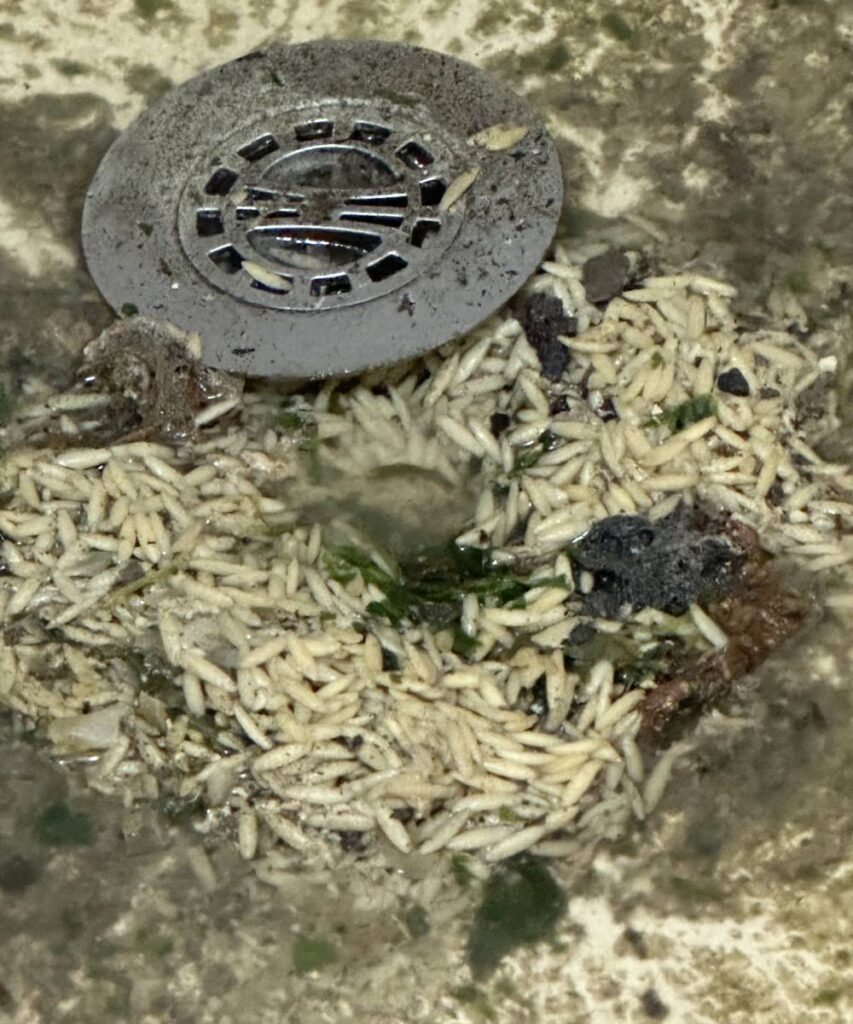
Tips to Prevent Kitchen Drain Clogs
To comply with food waste policies while protecting your drains, follow these practical tips:
- Install a Sink Strainer: Use a mesh strainer to catch food particles before they enter your plumbing system.
- Dispose of Grease Properly: Avoid pouring grease or oil down the drain. Collect it in a container for trash or recycling.
- Run Cold Water with Disposals: When using a garbage disposal, run cold water to solidify grease and flush debris through the system.
- Compost Directly: Place food scraps in compost bins without rinsing them in the sink to reduce drain residue.
- Maintain Regularly: Schedule periodic drain cleaning to prevent buildup and ensure smooth drainage.
These habits can minimize clogs and support eco-friendly plumbing practices.
Hydrojetting: A Solution for Stubborn Clogs
For persistent clogs or heavy buildup, hydrojetting is an effective drain cleaning method. This technique uses high-pressure water to clear grease, food waste, and debris from pipes without chemicals or invasive tools. Benefits include:
- Comprehensive Cleaning: Hydrojetting removes all traces of buildup, restoring pipes to optimal condition.
- Environmentally Friendly: It uses only water, supporting sustainable plumbing practices.
- Long-Term Results: Unlike traditional methods, hydrojetting cleans the entire pipe, reducing future clogs.
Professional plumbers use hydrojetting to tackle tough blockages and maintain healthy drains.
Eco-Friendly Plumbing Practices for Food Waste
Aligning your plumbing habits with food waste policies can benefit both your home and the environment. Consider these solutions:
- Choose a High-Efficiency Garbage Disposal: Opt for a disposal unit designed to handle food waste without overloading pipes.
- Use Enzyme-Based Cleaners: These natural products break down organic matter in drains safely and sustainably.
- Compost at Home: Set up a backyard compost system to reduce reliance on garbage disposals and keep food waste out of drains.
- Upgrade Plumbing: For older homes, modern pipes can better handle food waste disposal demands.
These practices support eco-friendly plumbing while protecting your kitchen drains.
Benefits of Professional Drain Cleaning
DIY methods like plungers or chemical cleaners may provide temporary relief, but they often fail to address underlying issues. Professional drain cleaning offers:
- Accurate Diagnosis: Plumbers use tools like drain cameras to identify blockages and assess pipe health.
- Safe Solutions: Experts avoid harmful chemicals, using methods like hydrojetting or snaking for effective results.
- Preventive Care: Regular cleanings prevent minor issues from becoming major repairs, saving time and money.
Partnering with a trusted plumbing service ensures your drains remain clear and compliant with food waste policies.
Knight Rooter: Your Plumbing Experts
At Knight Rooter, we specialize in keeping your kitchen drains clear and your plumbing system running smoothly. Our team offers expert drain cleaning and hydrojetting services tailored to your needs. Whether you’re dealing with a stubborn clog or seeking preventive maintenance, we’re here to help. Contact us for drain cleaning in Seattle, hydrojetting in Bothell, or drain cleaning in Bothell to schedule your service today!
FAQ
1. How do food waste policies impact kitchen drains?
These policies increase garbage disposal use, leading to food particles and grease buildup, which can cause clogs.
2. What is hydrojetting?
Hydrojetting uses high-pressure water to clear debris and grease from pipes, offering an eco-friendly drain cleaning solution.
3. Can I pour grease down the drain with hot water?
No, grease can solidify in pipes, causing clogs. Dispose of it in the trash or at a recycling facility.
4. How often should I clean my drains?
Annual or bi-annual professional drain cleaning prevents buildup and maintains plumbing performance.
5. Why choose Knight Rooter for plumbing services?
Knight Rooter provides expert drain cleaning and hydrojetting, ensuring reliable, eco-friendly solutions for your plumbing needs.
For professional and fast drain cleaning Bothell, drain cleaning Seattle, and drain cleaning Bellevue, contact KnightRooter. Our team is ready to provide the best solutions for your drain issues.

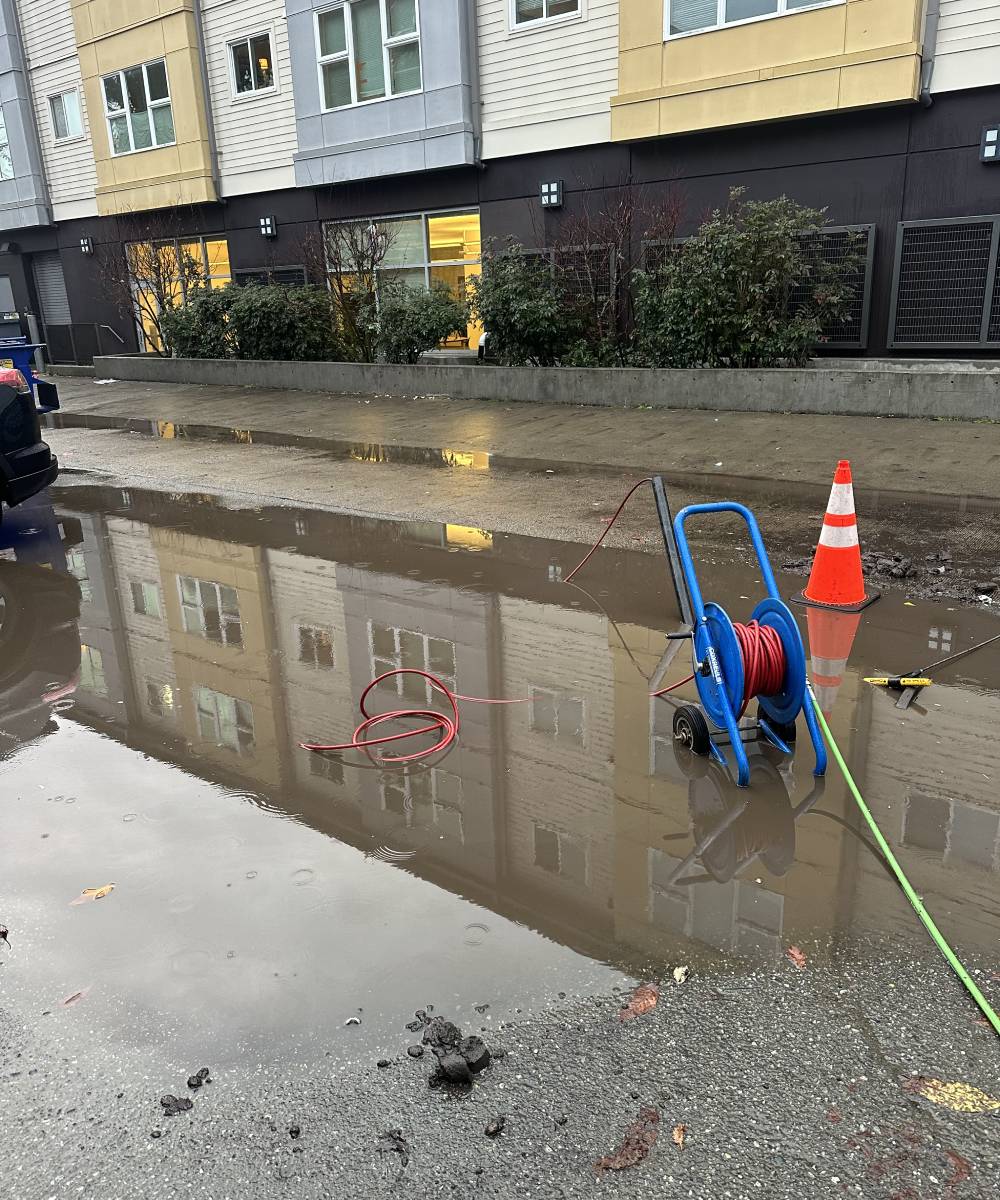
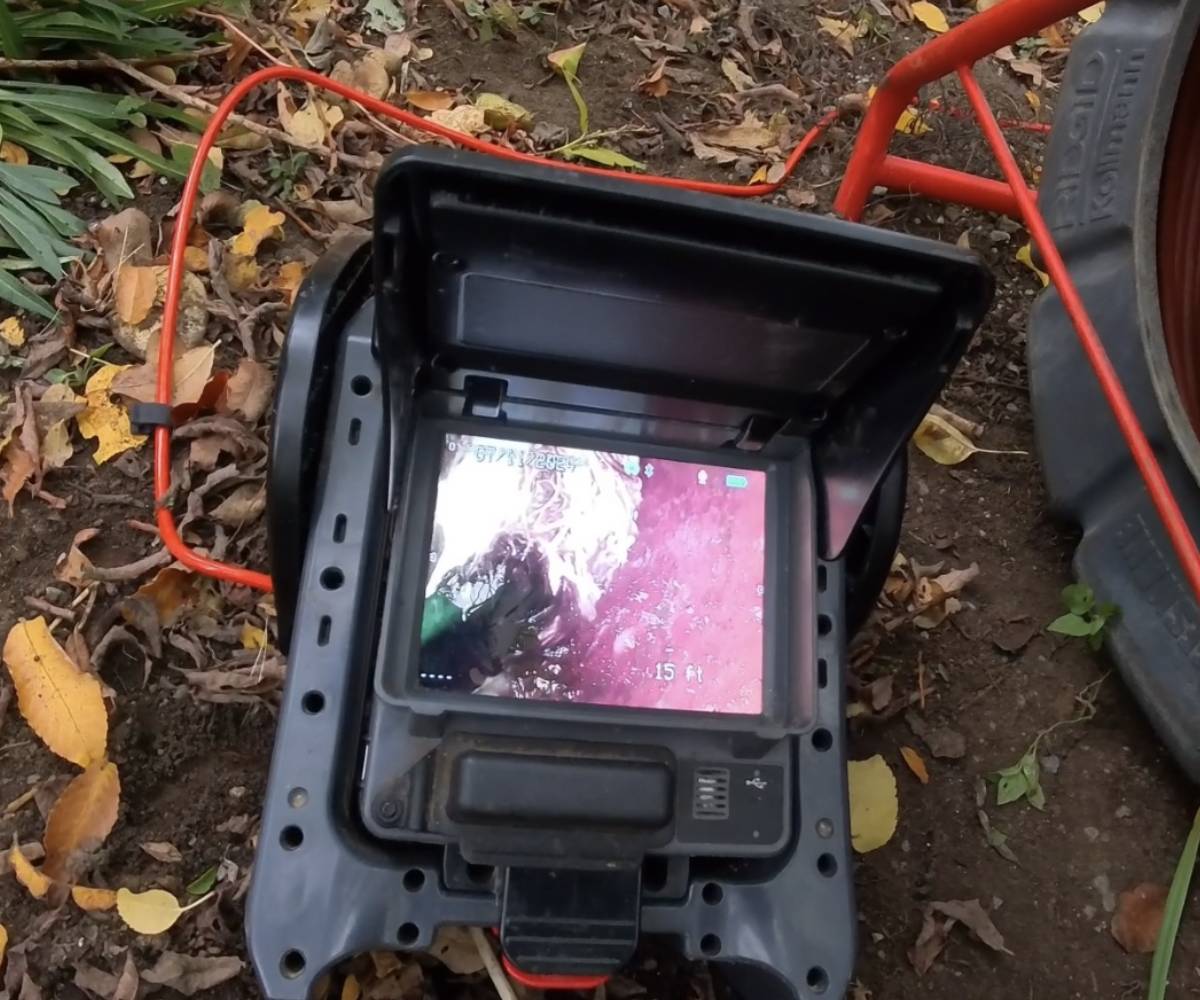
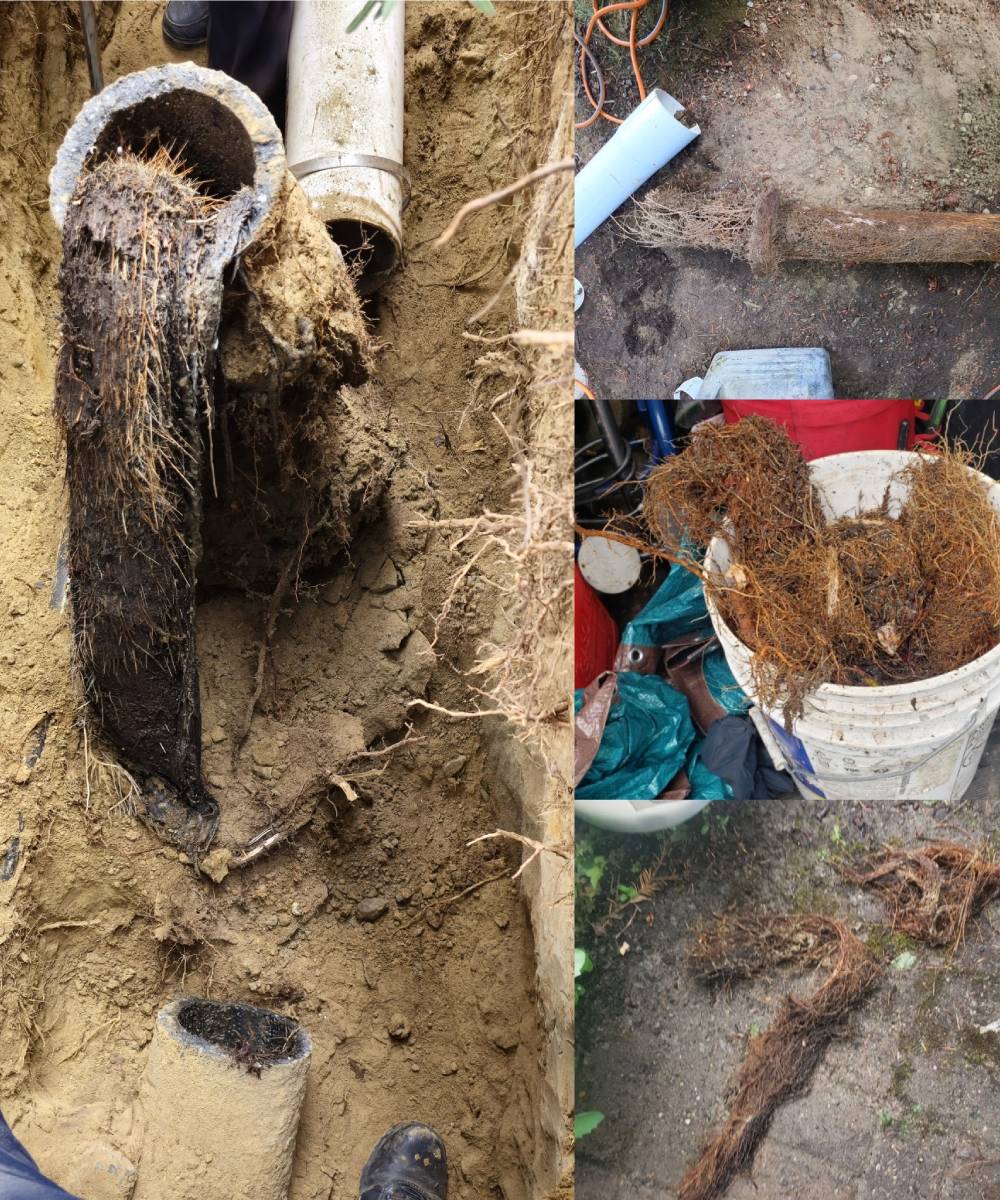
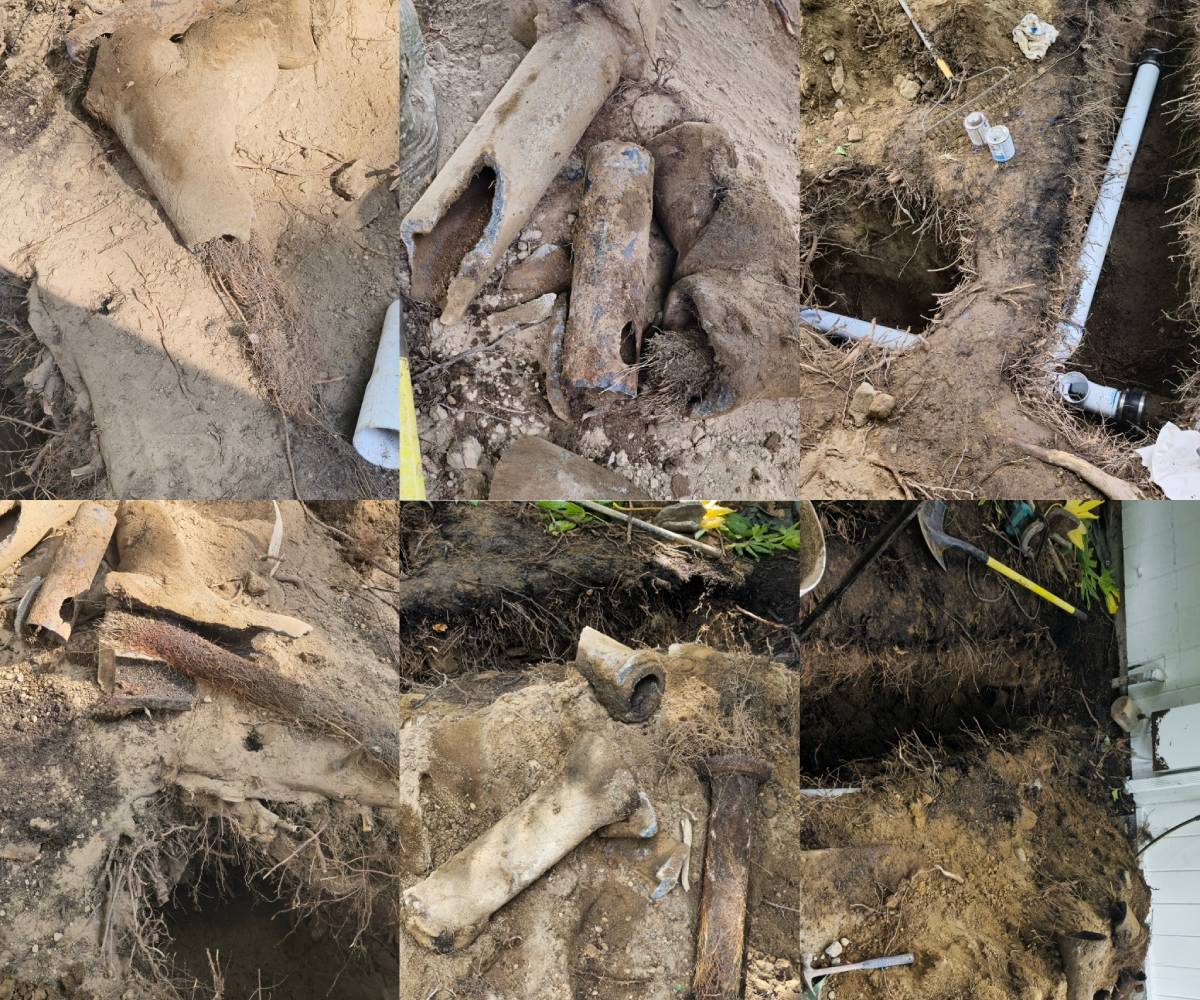
No comment yet, add your voice below!